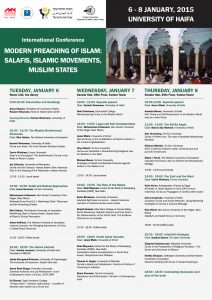 An impressive achievement for Dr. Shlomo Wagner from the Department of Neurobiology who, along with three other research partners from universities in Germany, the USA, and France, has been awarded a prestigious grant awarded by the Human Frontier Science Program (HFSP), a EU-funded organization which encourages ground-breaking research in science. The aim of their study: deciphering the action mechanism in the brain of the hormone oxytocin which is responsible for social communication. The research grant awarded to the four is in the sum of $1.3 million.
An impressive achievement for Dr. Shlomo Wagner from the Department of Neurobiology who, along with three other research partners from universities in Germany, the USA, and France, has been awarded a prestigious grant awarded by the Human Frontier Science Program (HFSP), a EU-funded organization which encourages ground-breaking research in science. The aim of their study: deciphering the action mechanism in the brain of the hormone oxytocin which is responsible for social communication. The research grant awarded to the four is in the sum of $1.3 million.
The HFSP is an international organization, funded mainly by the European Union (in which the United States also participates) which awards grants in the fields of the natural sciences to research teams integrating investigators from different countries and various disciplines. The other partners in Dr. Wagner’s team are Dr. Valery Grinevich from the University of Heidelberg in Germany, Dr. Joseph Buxbaum from the Mount Sinai Medical Center in New York, and Dr. David Hansel from the National Center of Scientific Research (CNRS) in Paris. Their joint research, which was ranked 12th out of more than 1,200 proposals, seeks to find specific groups of neurons associated with the operation of the hormone oxytocin in the brain, thereby enabling the linking of specific neurons with specific behaviors – something which is extremely difficult to accomplish. “This is a very ambitious task, which brings together the use of innovative technologies and a fascinating multidisciplinary approach” the jury noted. “If the research succeeds, as we expect,” said Dr. Wagner, “we will be able to identify different groups of neurons that operate during various kinds of social behavior. This will lead us to the possibility of preventing a specific social behavior, for example, aggression or fear of crowds, without impairing other behavior.”

